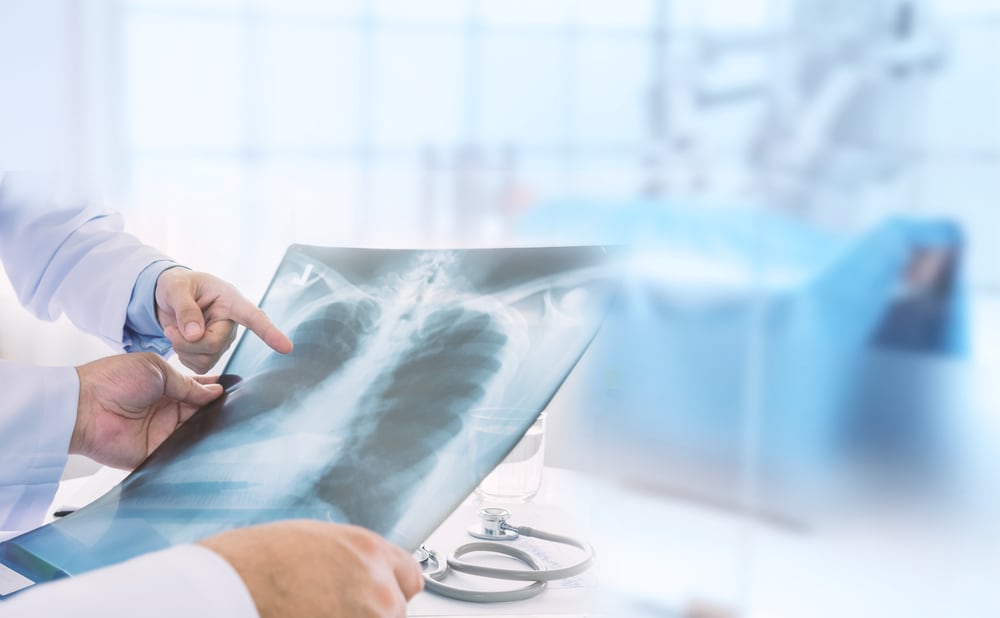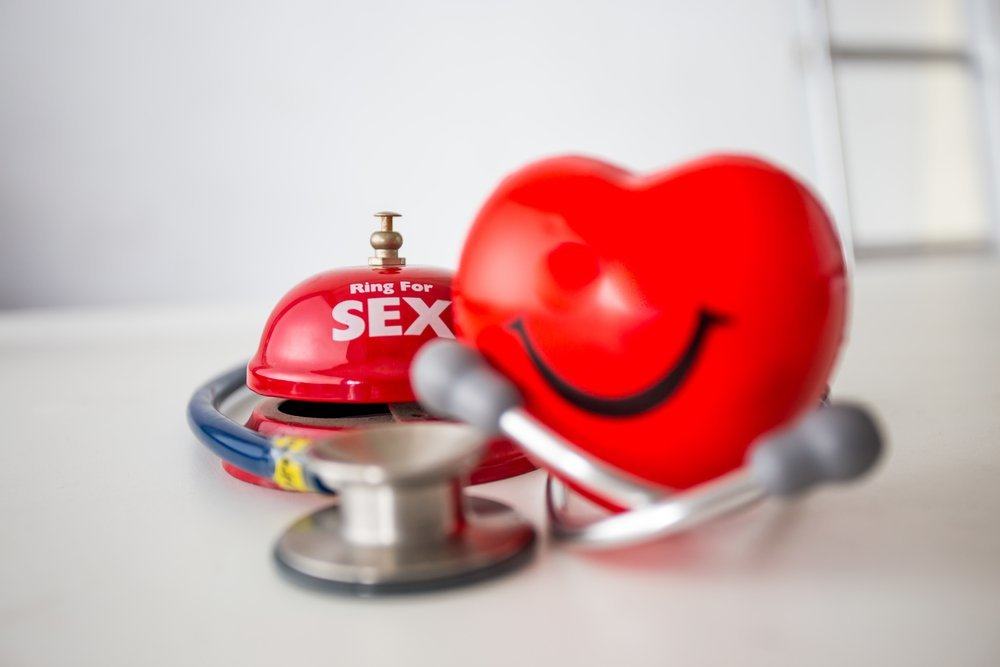Contents:
- Medical Video: Understanding COPD
- What is emphysema?
- What causes a person to get this disease?
- Who is at risk of developing emphysema?
- What are the signs and symptoms of emphysema?
- What complications might arise from this disease?
- Tests and diagnosis
- What tests are usually performed to make a diagnosis?
- How is this disease treated?
Medical Video: Understanding COPD
What is emphysema?
Emphysema is one of two diseases that commonly occur in people with Chronic Obstructive Pulmonary Disease (COPD). This disease damages the air sacs in the lungs (also called the alveoli) by making them permanently lose elasticity.
Alveoli is a place for exchanging oxygen and carbon dioxide in the lungs. Damaged alveoli causes the ability of the lungs to supply oxygen to the blood to be reduced.
Until now, there is no cure for the damage to the alveoli. That is, this disease cannot be cured. However, you can prevent it so that the damage does not get worse.
What causes a person to get this disease?
One reason someone can get this disease is excessive exposure to chemical irritants, such as cigarette smoke. In addition, long-term exposure to air pollution as well as hazards in the work environment can also trigger this condition.
At first, your lungs may become inflamed due to frequent exposure. As a result of that exposure, your lungs then lose their elasticity, narrowing the airways and blocking the incoming air flow. This breathing disorder occurs.
Smoking is the main reason for all lung diseases, including emphysema. Other factors that may also be the cause of this disease are genetic elements, although actually quite rare.
Who is at risk of developing emphysema?
Usually, this disease is experienced by people who have smoked for a long time. That is why, this disease is usually only successfully diagnosed or found in middle age or old age. Not only men, women also have the potential to have this disease.
According to reports from Surgeon General's Office of the Department of Health and Human Servicessmokers increase their risk of developing emphysema 13 times greater (HHS, 2004). Not only smokers, people who are exposed to cigarette smoke, aka passive smoking are also at risk for this disease.
In addition to cigarette smoke, air pollution and exposure to other chemicals, which may be obtained from the work environment also cause a person at risk of this disease. Certain factory workers are one example.
In addition to air pollution, and cigarette smoke, there are other risk factors, besides air quality, which cause a person at risk of this disease. Research shows that Caucasians suffer from emphysema more often than other races. Genetic factors are also known to cause emphysema in younger people. However, this is a rare case.
What are the signs and symptoms of emphysema?
Symptoms of emphysema will usually worsen when you exercise. One of the most common symptoms is shortness of breath which may also be accompanied by coughing. Here are some of the other symptoms that result from this disease.
- Shortness of breath that worsens over time
- More susceptible to infection
- Excess mucus (phlegm) in the lungs
- Fatigue, fatigue
- The central part of the lungs is enlarged as the body attempts to increase the size of the lungs. This condition is also called barrel chest
- Skin or nails that become bluish due to lack of oxygen
Fatigue, weight loss, depression, and rapid heartbeat are other symptoms that may arise due to emphysema. If this happens, immediately seek medical help.
What complications might arise from this disease?
Emphysema can affect other parts of the body and cause serious lung conditions. Complications of emphysema can include:
- Pneumonia, which is a bacterial infection of the lungs. People with emphysema tend to experience pneumonia
- Pulmonary collapse. Some people who have this disease have swollen air sacs in the lungs calledbullae. This bag can enlarge to the size of half the lungs. If this bag ruptures it will cause lung function to collapse. This condition is also called a pneumothorax
- Heart problem. This disease causes damage to the alveoli in the lungs. This will reduce the number of capillaries and reduce oxygen levels in the blood. That is, the heart has a greater burden to pump blood to supply oxygen to all body cells. Over time, this will cause swelling of the heart due to large arterial pressure
Tests and diagnosis
This disease can be diagnosed in several ways. The first question the doctor will ask if you are suspected of having this disease is about your smoking habits. He will also ask about the home and work environment whether it allows you to be exposed to materials that have the potential to cause lung damage.
In addition to establishing a diagnosis by exploring your habits, a clear physical examination will be carried out. Especially because emphysema can cause changes in appearance, such as bluish skin or barrel chest. Malnutrition is also a sign of emphysema.
What tests are usually performed to make a diagnosis?

To strengthen the diagnosis, your doctor may also do certain tests (including laboratory tests) to ascertain the suspected disease. Some tests can diagnose emphysema, including imaging tests, lung capacity tests, and blood tests.
- Oximetry test. This test is done to measure oxygen levels in the blood. To measure oxygen levels in the blood.
- Lung function tests. To carry out this procedure, you will be asked to breathe in the hose with the aim of measuring how much air you can hold in the lungs and how much you can exhale. The results of this test will show how well your lungs can "trap" the air inside to supply oxygen to the blood.
- Imaging test. Imaging tests are done by chest X-ray or chest CT scan. Through this test, you will see what your lungs look like. This test can lead to abnormalities, such as air bubbles that form in the lungs.
- Complete blood test. When suffering from emphysema, the number of red blood cells can increase. The presence of an infection in the lung due to this disease can also increase the number of white blood cells for that complete blood examination is done to determine the presence of this disorder.
How is this disease treated?
Emphysema is a chronic disease. That is, this disease cannot be cured. Although it cannot be cured, this disease can still be controlled with drugs. In addition, therapy and surgery can also help control this disease and improve quality of life.
Some ways to prevent this disease from getting worse include:
- Quitting smoking is the most effective control of emphysema and lung disease. Avoiding other pollutants will also help so that this condition does not worsen.
- The pulmonary rehabilitation program will teach you how to practice breathing, how to reduce stress, and how to exercise with emphysema.
- Oxygen therapy.
- Medications to reduce inflammation (anti-inflammatory).
- Medications to open the airways and thin the phlegm (bronchodilators).
- Antibiotics and vaccinations to prevent infection.
People with this disease often experience anxiety and depression. Joining groups that have similar problems can also help. Given that people with emphysema often have a lack of body, eating foods rich in vitamins A, C, and E, such as fruits will also be recommended to help maintain good conditions.
Hello Health Group does not provide medical advice, diagnosis or treatment.













